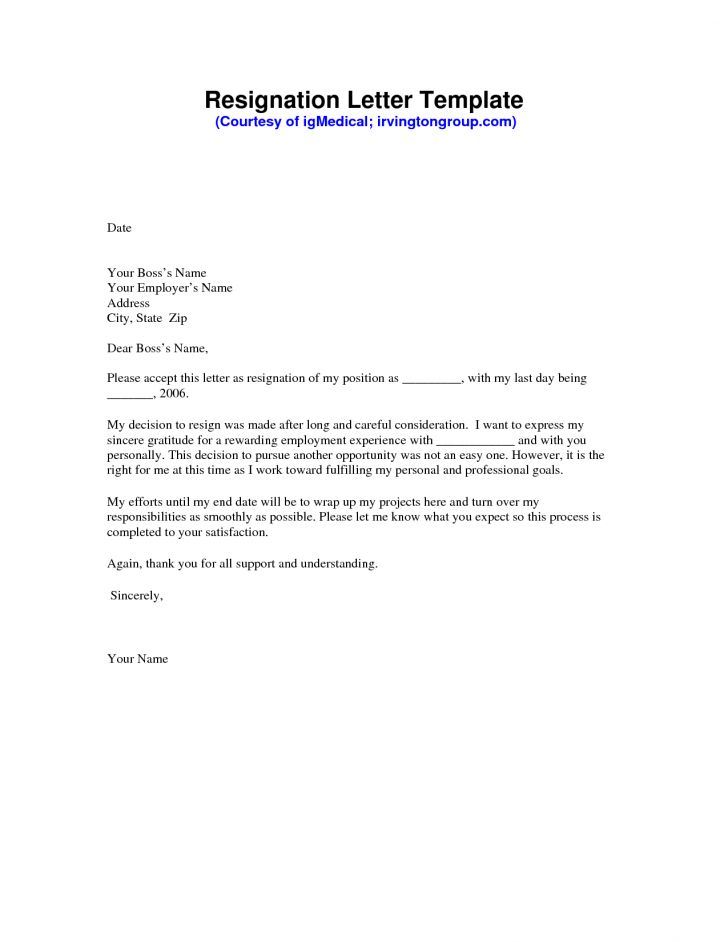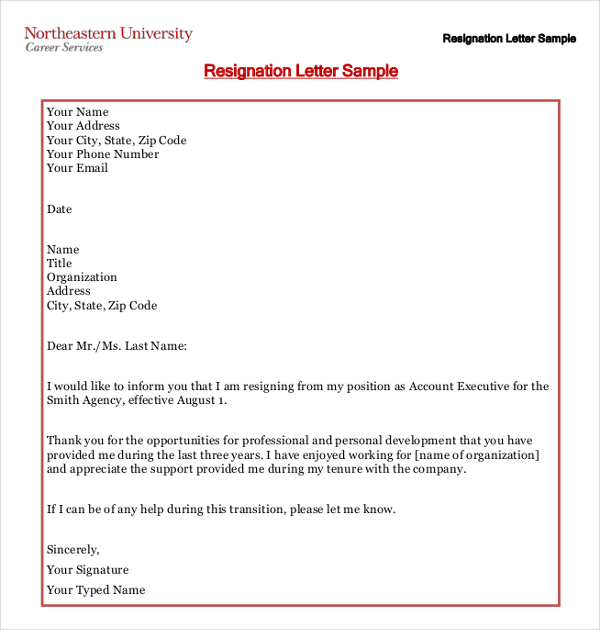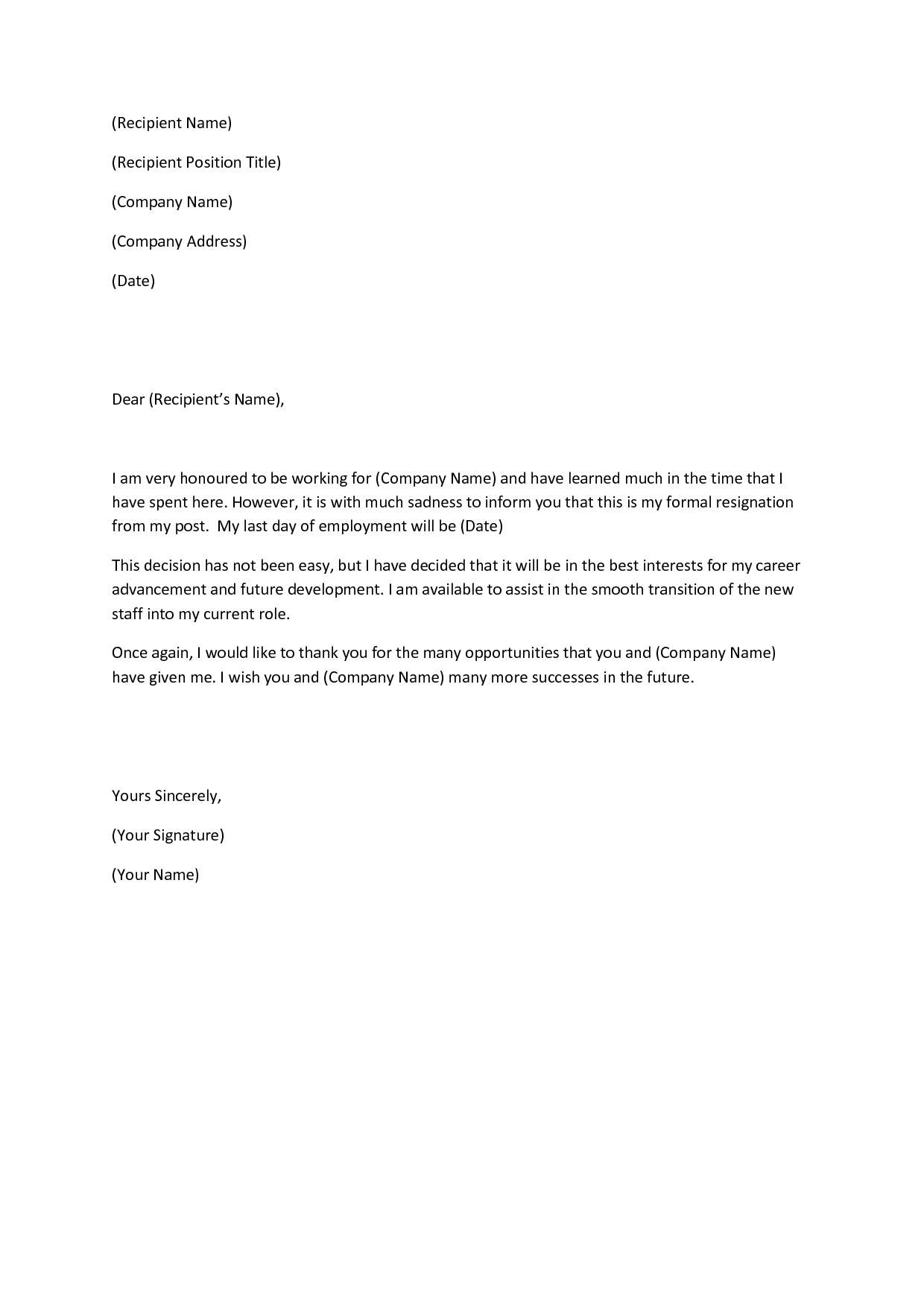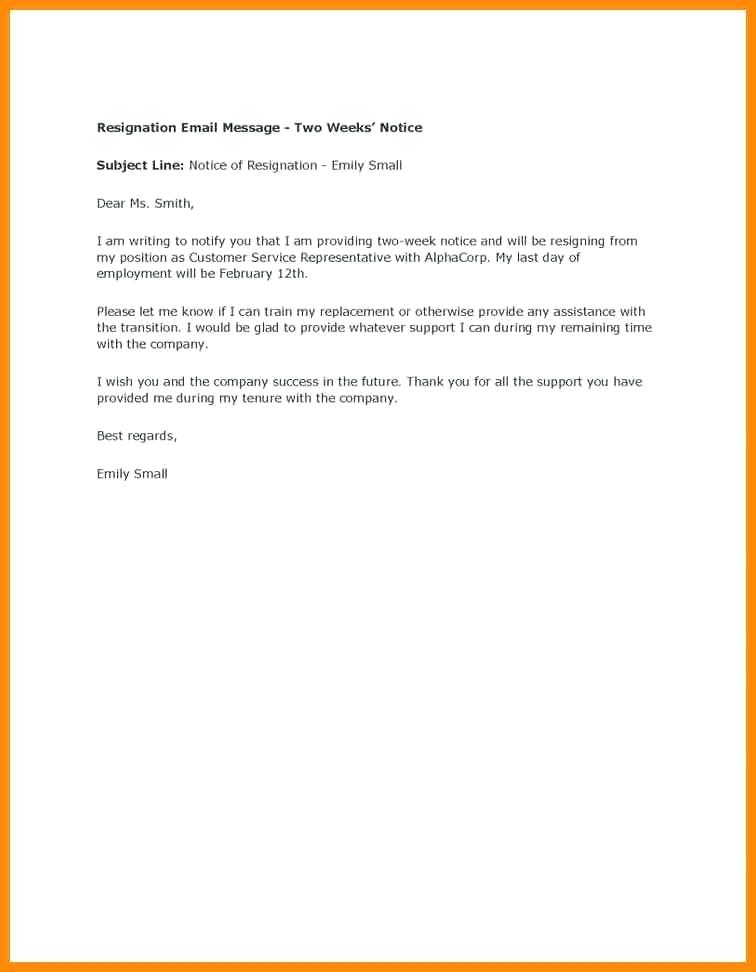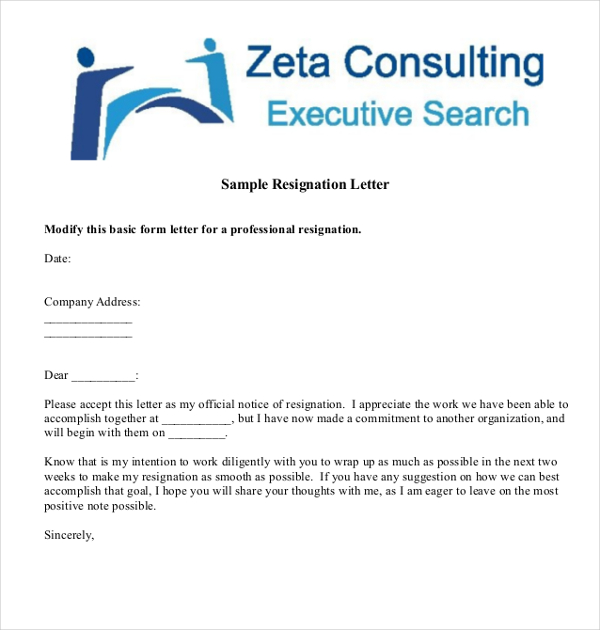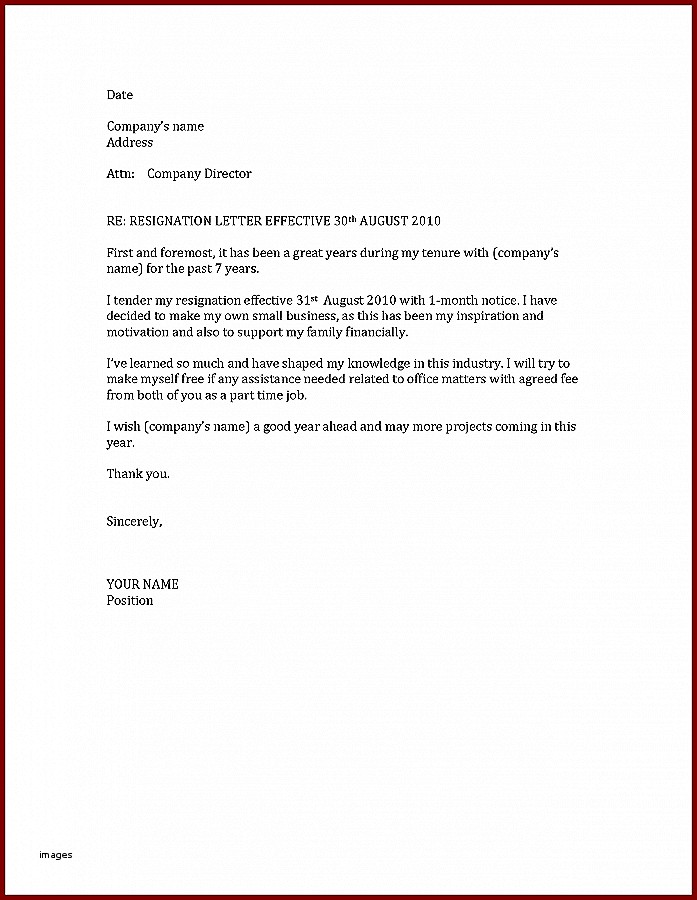5+ Resignation Letter Examples to Download
There comes a point in our lives that we yearn for something more than what we currently have. One thing is for sure, we all yearn for a better life. We yearn for an achievement, a raise, a promotion, or a better job in general. Probably we don’t find our current job as exciting and challenging as what you felt before. Or you are no longer satisfied with your company’s treatment of their employees. Or you’re looking for a higher paycheck. Or you like to experience a new working environment that will hone your craft in other areas. Whatever your reason is, you need to pass a letter of resignation to show courtesy that you are leaving the company for good.
Even if it might be tempting to drop everything and walking out, or leave the company without any trace or hint that you’re not coming back anymore, be polite in asking permission that you are moving on from the company. It’s important to leave on good terms even if you are 100% sure you’re not coming back again. Your former employer could provide a good referral when you’re going to apply for another job. You may also see Official Resignation Letter.
Resignation Letter Template Example
Resignation Letter Example
If you’re not sure on what to put in your resignation letter, here are some tips to help you out and make your letter sound professional.
1. State Your Intention
State down your main intention. Your intention is leaving, so put it down right away that you intend to leave your job and don’t beat around the bush. Make it crystal clear. Make sure not to sound so aggressive, but rather make your voice subtle but straight to the point. Also, mention the date by which you will be finishing all your pending works. If you’re not sure, give at least two week’s notice. If you’re itching to pass a resignation letter, passing this will make the weight be lifted off your shoulders. You may also see Retirement Resignation Letter.
Example:
Dear Employer:
I’m sending this letter to announce my resignation as a marketing assistant effective April 12.
2. State Your Gratitude
Even if you have zero gratitude over the company you’re leaving or you’re sentimental in leaving it, there are times in the past that you actually loved your job, loved the company of your co-workers, and loved what you were doing. Think of the time you were so ecstatic when given the opportunity to work in the company. Think of the time you were lauded for a job well done. Sit down and force yourself to think of the good memories you had in the company. What were the skills that you’ve learned in the company? What were your achievements? Put it down in your letter and make sure you are genuine about it. It will be worth it. You may also see Official Resignation Letter.
Example:
It’s hard for me to do this since my time in this company is the one I will cherish. It’s been a privilege for me to be a marketing assistant for the past year. Under your training; I learned to appreciate the value of hard work, resourcefulness, and dedication in my job. I appreciate how you welcome your staff’s ideas to make your company a better workplace.
3. State Your Reason for Leaving
It may be a relieving experience for you to spout the reason that you’re leaving this company for good. You want to write that some of your co-workers steal your candies you placed on your desk or the management doesn’t listen to your ideas or the paycheck is not what you expected. Either way, don’t make it too personal but put some truth in it. Be diplomatic and polite in listing down on why you’re leaving.
Example:
I’ve been deliberating about it for the longest time but I felt that I’m not the right person for this job anymore. It’s been hard for me to keep up with the obligations I am assigned to do and it frustrates me to no end in dealing with it. I don’t think I can keep up with the pressure I am put into since the management has made changes in our job for the past few weeks. Instead of disappointing you, I voluntarily step down from my position.
4. State a Positive Note in the End
So, you are done writing the reason why you are resigning, end your letter on a light note. Don’t burn your bridges since they may be helpful for you in achieving your goal later on. And, even if you don’t intend to (or you may), express in your letter that it is possible that you may collaborate in the future in a different capacity. Don’t use sarcastic words in this part; instead be genuinely sincere in your appreciation towards the company. This is a good way to maintaining good relationships with your employer. They may keep you in mind that you were an efficient employee and in case you two cross paths together in future, they may be willing to accommodate you. See, it’s a win-win situation.
Example:
Despite the challenges I faced, I want to thank you all for the opportunities you’ve given me. I look forward to our future collaboration when it comes. I give my best wishes to you and the company.
Sincerely yours,
You’re almost ex-employee
Other Tips to Consider While Writing Your Heartfelt Resignation Letter.
1. Keep Your Tone Professional and Cordial
As it was mentioned before, keep your tone as businesslike as possible. You neither need to write a sonnet nor should you put profane words in your letter. This is still a business correspondence (the last one you will get to do) and your employer will treat it as one. Address them by their name and proofread your letter before sending it. Also, limit your paper to a single page only.
2. Provide Support… Somehow
Now that you’re going to say au revoir to the company, provide your employer a heads up at least two weeks prior that you are resigning so they can look for your replacement. If you hold a higher position, you give a longer time to provide a notice of your resignation. If you can, it’s a courtesy to help provide your replacement. That way you can personally train your replacement and leave the company sure that not only you’ve given them a replacement but also taught him/her your expertise.
3. Provide Physical Evidence
Provide a physical resignation letter that is typed out and printed, or written, or emailed. Even if you’ve talked with your employer that you’re resigning, it’s a good idea to provide a physical copy of your resignation. Just so they can keep it for future references.
4. Be Ready for the Exit Interview
You can’t just pass your letter to your employer and walk away. Most companies have exit interviews and you need to sit down with your boss for a final interview. They might want to clarify things for you. Tell yourself to get ready for it even if it’s going to be awkward. Just remember to make it professional. If you were asked to provide constructive feedback about the company, don’t rant all their shortcomings.
Restrain yourself from saying mean things or putting up an aggressive attitude, especially if your boss will give you a counteroffer to keep you in the company. They might provide you with incentives so you’ll stick around. Since you’ve sent your resignation letter and you’re 100% sure you are ready to take on the next step chapter of your career life, be sure to commit and be firm on your decision.
Don’t accuse your employer of providing you incentives now that you’re leaving as a way of bribery. Graciously decline their offer but thank them for their appreciation. Also, discuss what will happen to your benefits or investments once you’ll stop working in the company.
Resignation Letter Format Example
Email Resignation Message Example
Professional Resignation Letter Example
Resignation Letter Template Example
Now that you’ve finished writing your letter, it’s time for you to slowly prepare yourself for a new chapter of your career. And, while you’re in the company for a little more time, don’t forget to thank your colleagues about the support they have given you and how they helped you. You may give out letters or thank them in person. They’ll appreciate your sincerity and effort. Don’t forget to also clear out your files on your desk and your computer before you leave. Make sure your workplace is clean once you’ll resign as a courtesy to the next employee who will replace you. Try to maintain a cordial relationship between you and your colleagues.
And so, good luck in whatever career path you are taking. Make sure it’s a greater one.



